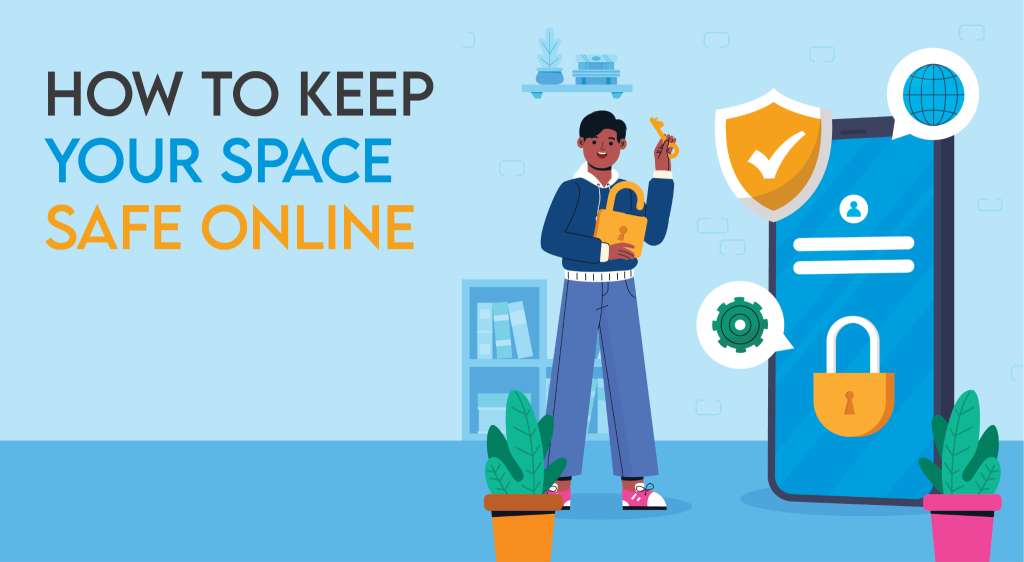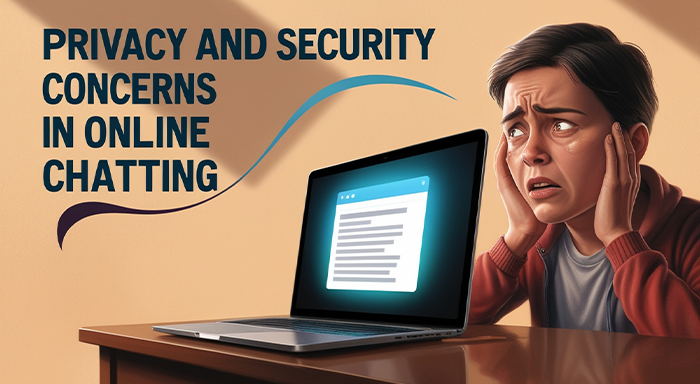Online chat is now a key part of how we connect. We use apps like WhatsApp, Facebook Messenger, and workspaces like Slack to share messages easily. But this ease comes with risks. We have to be careful of problems with privacy and security. As more people chat online, risks like data leaks, stealing personal information, and harmful attacks grow too. To protect ourselves, we need to grasp these big chat-related risks and know how to lessen them.
Understanding Risks of Data Collection
Online chatting comes with a key risk: how much personal information the messaging apps collect. Whether it's for ads, bettering the user experience, or crunching numbers, these platforms scoop up a lot of user data. Most apps mention this data hoarding in their privacy policies. Yet, many people don't pay attention to these details. They may not know what the platforms are tracking.
Think about this: apps might record how and when you use them, your list of contacts, and even your location. Sometimes, they share this info with others, typically for ads. Even when you chat privately, apps can gather lots of metadata from your activity. This reveals a lot about you, your routine, and your friends. Plenty of companies, especially those offering "free" messaging, use this data. They craft specific ads or sell the info to marketers. Your privacy could be compromised by this. It might even break your consent rules if it's done in the shadows.
We need to think about chat data storage. Numerous chat apps keep conversation logs on their servers for a long time. They usually do this for better backups or to serve users well. But, this can increase the chances of data leaks. This is especially true if the firm's safety measures are cracked.
Why We Need Encryption in Online Talks
Keeping your chat's secret is easier with encryption. It is like a digital lock, seen only by you and the one you are talking to. Nobody else - not hackers, not the government, not even the folks running the chat program. If someone gets your messages, they won't understand them. That is because encryption scrambles them. This protects your privacy, a super important thing in our internet-driven world.
WhatsApp, Signal, and iMessage are known for their end-to-end encryption. This means only you and the person you are chatting with can read the messages. But wait! This is not true for all platforms. For example, Facebook Messenger and Instagram Direct do not automatically encrypt conversations. Therefore, if you are not careful, your chats are vulnerable to third-party snooping. Another interesting point? Even when chats are encrypted, some platforms still gather additional details. This can include when, where, and at what time you send messages. When you need to switch to email, opt for private email that offers end-to-end encryption and avoids content scanning, keeping messages and attachments strictly between you and the recipient.
Encryption works great. But, know this - not all encryption types are the same. Some use secret, exclusive methods that might secretly be flawed. Always go for those using famous, open encryption methods. They get frequent safety checks and are totally open about their ways.
Security Risks: Phishing, Malware, and Beyond
Think of privacy as the rules of using data, and security as its guard. Lately, messaging apps are popular spots for phishing - a trick where online thugs act like your friends to fish out your personal info. Some of these scams are really smart, which makes it tough for folks to tell real messages from the bogus ones.
Let's say you get a message that looks legit. It is from a contact or company you believe in. They tell you to click a link or download an attachment. That is when the trouble starts. You click, and bam! You could be giving up important stuff like your password without knowing it. Or, you might end up putting harmful software on your device. Bad guys also use weak spots in messaging platforms. They can quickly send out these phishing schemes, reaching millions of users fast.
Phishing is not the only danger, malware is a serious issue too. Bad links or files shared in chats can harm your device. Cyber attackers could watch your actions, swipe private details, or hijack your entire system. It gets worse as many folks do not see these cybersecurity risks until the damage is done. Malware can hide in your device for a while, secretly gathering and sending your data to the hacker.
A rising concern is the risk of man-in-the-middle attacks. This is when cybercriminals intercept conversations that are being sent. If there is no encryption, these predators can view, change or wipe out message contents. The people chatting have no clue and don't even see that the phone is hacked. What makes these attacks scarier is that the hacker can pretend to be one of the people chatting. This will not only damage your reputation but will also lost your money and break your trust.
Impersonation and stealing of identities often happen. This is the act of hackers accessing a user's account and exploiting it. They might send fake messages or twist important information. This kind of attack can create big trouble, both in everyday life and at work. It can lead to lost money or rumors based on wrong facts.
Metadata: The Silent Footprints
You might be using encrypted chats, yet metadata—details about your conversations such as the chat partner, time, and location—can still be recorded. This unseen path of data exposes more of your actions than you might think. Authorities, advertisers, and even lawbreakers can utilize metadata to create user profiles, keep tabs on their communications, and follow their locations.
Metadata is often sought by governments in crime investigations. This is giving rise to concerns that it will become a common form of tracking. While tracking criminal acts may be a valid reason for governments, there's a chance for misuse. The idea of massive monitoring gives rise to doubts on human rights and the moral aspects of gathering data.
A software product development company might utilize metadata to build comprehensive user profiles, which enables them to display perfectly tailored ads. This method brings up privacy concerns and how much companies can employ this data without your clear approval. Sometimes, companies could use metadata to guess private details about you like your likes and dislikes, connections, or even your health status, only based on your communication behavior.
Big Data Breaches: What We Can Learn
There have been some major breaches that showed us flaws in chat platforms, underlining the importance of stronger security. Back in 2018, Facebook got some heat when it came to light that user info, like chat metadata, was wrongly given to third parties. In the same way, hackers hit Telegram, an app praised for its privacy perks, and this showed a leak in its system.
During the pandemic, even practical tools like Zoom had problems. Unwanted visitors got into private meetings and chats. This shows, with no doubt, that every tool can be hacked. This reminds us why secure messages and good personal security habits matter so much.
How to Keep Your Space Safe Online
The danger is real, but so are solutions. Several actions will help shield your private and secure space on internet discussion platforms.

Begin by picking a chat service with built-in end-to-end encryption. In addition to this, Signal and WhatsApp are great choices as they don't store your information; instead, they concentrate on keeping it confidential. For professional needs, both Slack and Microsoft Teams can be safe options, as long as you ensure solid encryption and access rules.
Next, move on to turning on two-step verification (2FA) for your messaging apps. It's like adding extra armor. Think of it as double-checking with something like a code on your mobile before confirming your identity besides your password. So, even if some cyber intruder gets your password, 2FA has your back, making it hard for them to sneak in.
Sharing sensitive info calls for extra care. Don't share personal things like money details, passwords, or social security numbers on chat unless you must. If you've got to share this stuff, make sure you're using a safe, coded platform. You can use an SSN lookup by name.
Be on the watch for bogus emails and odd messages, even from folks you know. Online scammers might pretend to be someone else to fool you into clicking dodgy links or grabbing nasty downloads. Got a surprise note asking for things you'd rather keep private? Check it out before answering.
Finally, be cautious when chatting online on public Wi-Fi. These networks often lack secure measures, so hackers could snatch your messages. To enhance your security, consider using a secure LAN messenger for internal communication within your network, which provides encryption and avoids the risks of public internet exposure. When you can't avoid public Wi-Fi, think about using a virtual private network, or VPN. This helps scramble your data and insulate your conversation from being spied upon.








